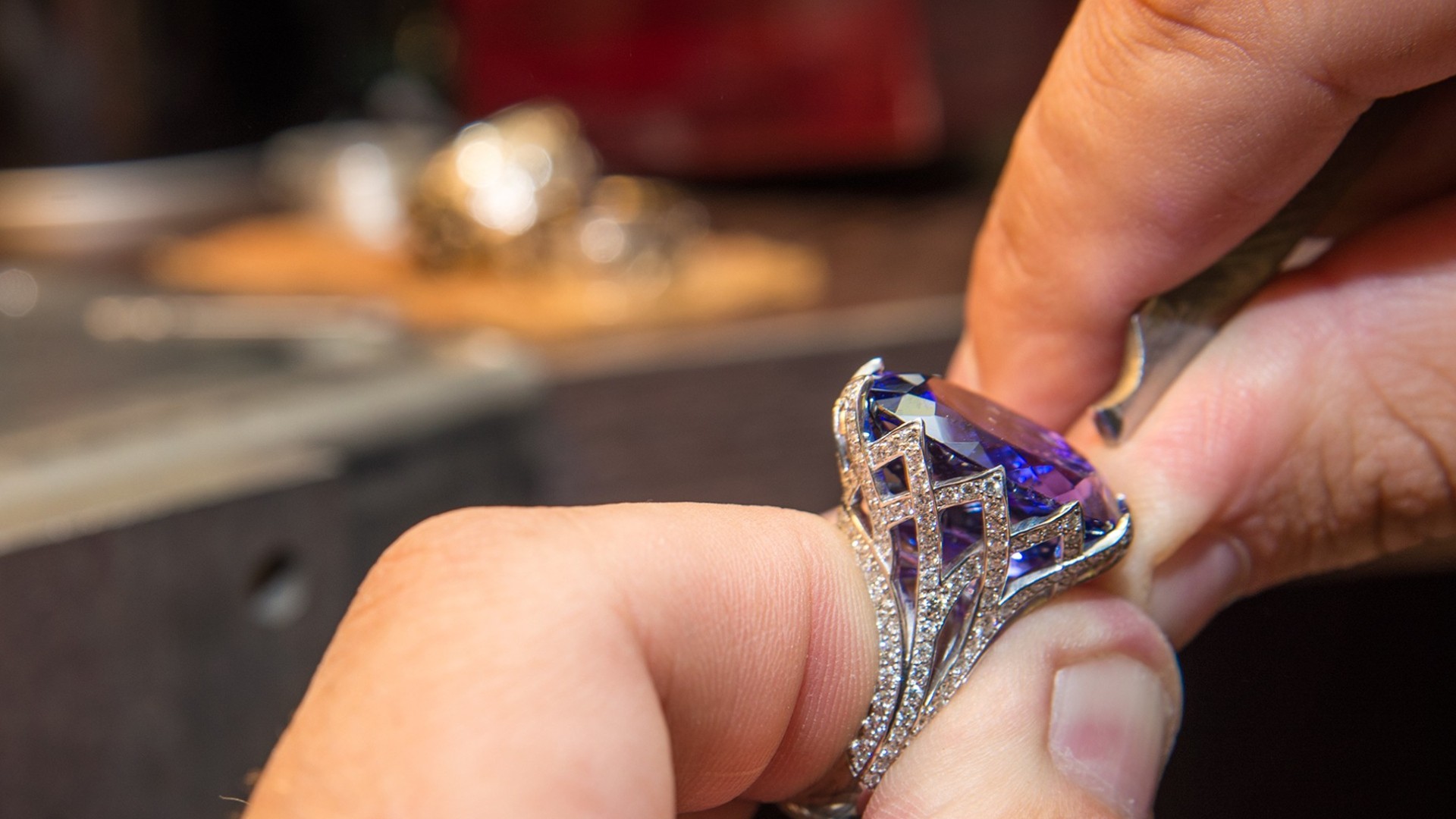Gem & Diamond Workers
Diamond Cutter, Diamond Setter, Gemologist, Lapidarist
 Select a military branch to see samples.
No similar titles were found.
Select a military branch to see samples.
No similar titles were found.
Allied Trades Specialist
No similar titles were found.
Machinist
No similar titles were found.
No similar titles were found.
What they do:
Fabricate, finish, or evaluate the quality of gems and diamonds used in jewelry or industrial tools.
On the job, you would:
- Examine gems during processing to ensure accuracy of angles and positions of cuts or bores, using magnifying glasses, loupes, or shadowgraphs.
- Assign polish, symmetry, and clarity grades to stones, according to established grading systems.
- Estimate wholesale and retail value of gems, following pricing guides, market fluctuations, and other relevant economic factors.
Knowledge
Business
- customer service
- sales and marketing
Manufactured or Agricultural Goods
- manufacture and distribution of products
Arts and Humanities
- English language
Math and Science
- arithmetic, algebra, geometry, calculus, or statistics
Skills
Basic Skills
- listening to others, not interrupting, and asking good questions
- talking to others
Problem Solving
- noticing a problem and figuring out the best way to solve it
Abilities
Hand and Finger Use
- put together small parts with your fingers
- keep your arm or hand steady
Ideas and Logic
- notice when problems happen
- group things in different ways
Personality
People interested in this work like activities that include practical, hands-on problems and solutions.
They do well at jobs that need:
- Cautiousness
- Integrity
- Attention to Detail
- Dependability
- Achievement Orientation
- Intellectual Curiosity
Technology
You might use software like this on the job:
Computer aided design CAD software
- GemCad
- Jewelry design software
Accounting software
- Business accounting software
Analytical or scientific software
- Spectrophotometer analysis software
Education
Education: (rated 3 of 5)
high school diploma/GED or
bachelor's degree
usually needed
bachelor's degree
usually needed
Job Outlook
Below Average
New job opportunities are less likely in the future.
Explore More
- Etchers & Engravers
- Grinding & Polishing Workers, Hand
- Jewelers & Precious Stone & Metal Workers
- Stone Cutters & Carvers, Manufacturing
- Tool Grinders, Filers, & Sharpeners
You might like a career in one of these industries:
See more details at O*NET OnLine about Gem & Diamond Workers.




